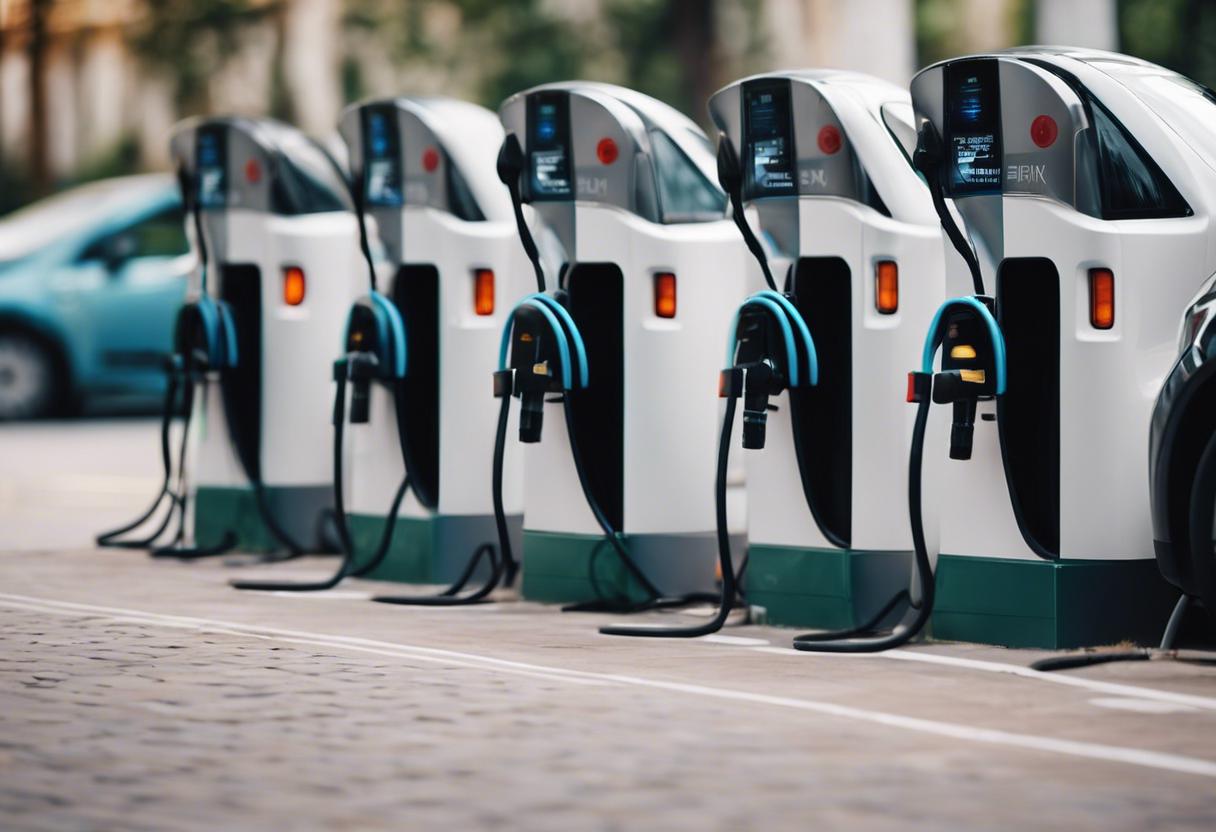As European automobile manufacturers grapple with stringent new EU carbon emission benchmarks and robust rivalry from China, an “EV (electric vehicle) winter” looms on the horizon. The forthcoming Paris Motor Show has found the major European car manufacturers prioritising the redevelopment of forfeited market share through the introduction of novel vehicle models.
The CEO of Renault, Luca De Meo, whilst launching the company’s battery recycling initiative and measures to bolster their EV operation, expressed the company’s determination to overcome pressing challenges. Highlighting the difficult journey ahead, De Meo underlined the ample opportunities he sees.
Unlike other notable European car manufacturers, Renault stands out for not publishing a recent profit warning. Companies such as Volkswagen, Stellantis, BMW, and Mercedes-Benz have had to lower their earnings predictions due to issues ranging from fierce competition and tepid European demand to swelling US inventories.
The automobile industry will face increased scrutiny next year as the new EU emission benchmarks become enforceable. The rules oblige car manufacturers to curtail carbon emissions from their overall fleet, either by augmenting the number of electric or hybrid vehicles, or risk sizeable penalties.
The path to achieving emission goals has been complicated by a recent sluggishness in EV sales. With consumers becoming more financially aware, along with subsidy reductions in major markets like Germany, it’s proving more difficult.
Various car manufacturers, barring Stellantis, have voiced their desires for these ambitious targets to be relaxed or postponed, in an effort to avoid penalties that could amount to an aggregate sum of €51 billion by 2030, as per AlixPartners consultancy.
In a presentation to an Italian legislative committee, Stellantis CEO Carlos Tavares emphasised how the adoption of EVs, necessitated by the rules, would result in substantial expenses for car manufacturers. Tavares indicated how the push for EVs was escalating costs by 40% in a market resistant to higher prices.
Henning Cosman, an analyst at Barclays, presumes international automakers will introduce over 100 EV variants in Europe this year, with around 70 more launches set for 2025. However, the reductions in price necessary for gaining market traction could result in an “EV freeze,” he suggested. He added, “For buyers, the likelihood of procuring a superior, longer-lasting EV with advanced technology and a smaller price tag in the imminent future dissuades them from purchasing today. And that’s the crux of the downward trend.”
European automakers, foreseeing the demand for lower-priced models in 2025, have primarily targeted the luxury segment in the current year. This strategy has left them struggling to match Chinese manufacturers such as BYD and Xpeng, who offer certain models for as little as €20,000. This figure, according to the non-governmental organisation (NGO) Transport & Environment, is half the average EV price in Europe.
“Europeans may not emerge victorious in a pricing battle,” observed Alexandre Marian from AlixPartners. Presently, EVs yield lower profits than traditional fuel-engine vehicles, even without considering potential discounts in the subsequent year. A report by Barclays indicates that the industry-wide gross margins are about 15 percent less for EVs than for combustion engine models.
The motor show will feature a few lower-priced models, such as a sub-€20,000 automobile from Leapmotor, Stellantis’ Chinese associate. Renault is accepting orders for their electric R5, valued around €25,000, and Citroën, another Stellantis affiliate, will exhibit models including the C3 Aircross compact SUV. Nevertheless, the only models priced around €20,000 are non-electric variants.
Research by Renault suggests that European automakers need to capture between 20 to 22 per cent of the European market to meet emission standards; however, they currently command less than 15 per cent. Experts believe that these targets can be met if automakers purchase emission credits from their competitors who sell greener vehicles. This strategy, however, is likely to extend the profit downturn for manufacturers such as Volkswagen and Ford, who are falling short of their emission targets at present.
In the lead up to the auto showcase, French automotive representative group PFA’s chairman, Luc Chatel, spoke to RTL radio station, informing that the industry and car makers have invested colossal sums into transitioning to electric vehicles (EVs). However, he also voiced a critical concern for the industry, highlighting the ‘grave risk’ as consumers’ interest seems to dwindle. As a consequence, he believes manufacturers might face financial penalties in Europe next year, an occurrence he finds quite paradoxical. – Copyright The Financial Times Limited 2024.

